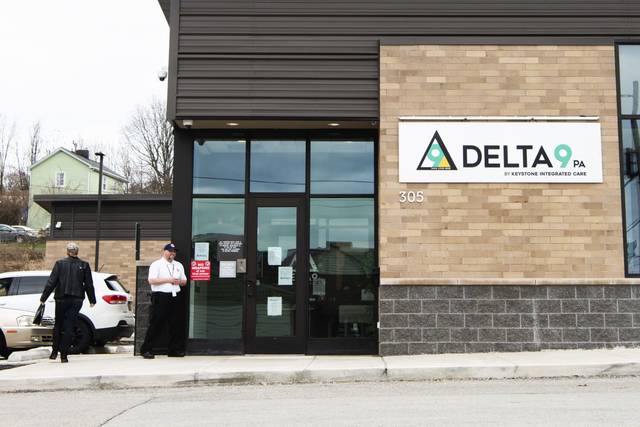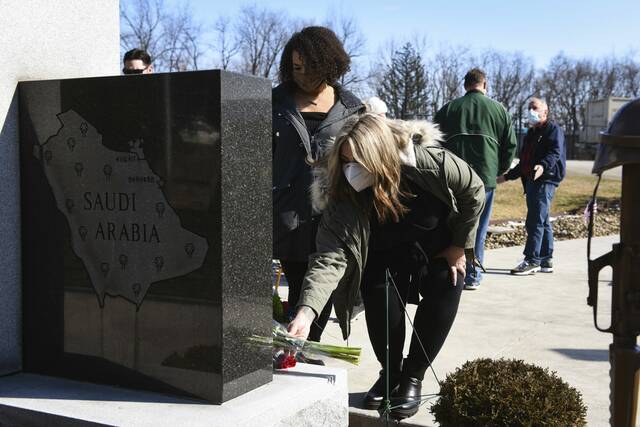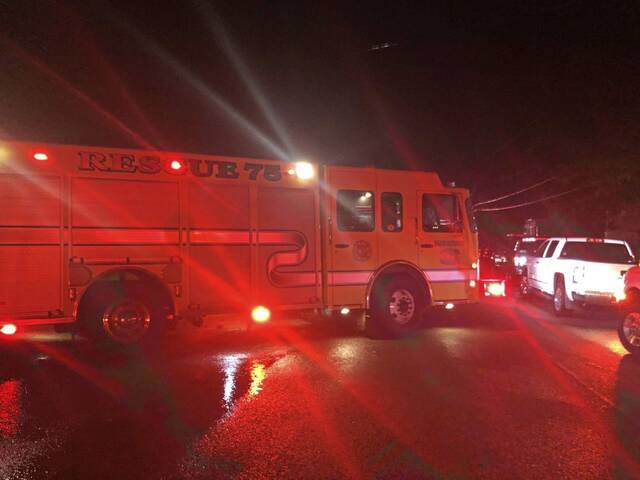Pennsylvania’s medical marijuana patients have been stocking up during the coronavirus pandemic, and the state temporarily has loosened regulations to make it easier for them to get product.
“The influx of patients is at an all-time high this week. We’re seeing so many new patients,” said Chris Kohan, co-founder of The Healing Center, which has dispensaries in Monroeville, Washington and Cranberry.
Dozens of customers lined up at the CY+ Dispensary in Pittsburgh’s Strip District last week.
This partly is because coronavirus fears are stoking people’s anxiety, and anxiety is one of the qualifying conditions for medical marijuana, Kohan said. Customers also are buying more marijuana as they prepare to hole up in their homes, he said.
The Healing Center’s average sale was $189 last week, up about $50 from normal.
State officials have declared marijuana dispensaries essential businesses, meaning they can stay open even when most other establishments have been forced to close.
The temporary regulations announced Friday allow dispensary employees to deliver marijuana to patients’ cars, allow patients to buy more marijuana at a time, and allow doctors and pharmacists to consult with patients over the phone rather than in person.
It’s too early to tell what effect the new rules will have on dispensaries and patients, Kohan said.
Not all dispensaries are well-equipped to offer curbside pickup. Busy ones can get hundreds of patients a day, making it infeasible for employees to constantly run marijuana outside to patients, according to Kohan.
He said dispensary owners are hesitant to make any major changes to their operations because it’s unclear how long the new regulations will remain in force.
“The biggest element is, how long is it going to last?” he said. “The second (Gov. Tom Wolf) lifts the moratorium, all those things have to go back to the way they were.”
The Healing Center locations has taken steps to prepare for the virus, reducing hours and marking the floor to make sure customers stay the recommended six feet away from each other.
The new regulation allows patients to buy a 90-day supply of marijuana product, triple the previous cap. However, the cap never meant much, Kohan said. The state never tracked the amount patients bought, and most dispensaries didn’t either.
“Before, anyone could have walked in and bought 90 days (worth of marijuana) at a lot of places,” he said.
However, one regulation change could have a much bigger impact, he said. The state has removed the cap limiting the number of patients that can be assigned to a registered caregiver.
A caregiver is a person registered with the state to buy marijuana on behalf of someone else. State regulations say each caregiver can only provide for five patients, but that has changed during the pandemic.
“That’s fantastic, because they can deliver,” Kohan said. “Opening up the number of patients they can have under their wing was a very large deal.”
Some caregivers are family members of patients. Others are volunteers who deliver marijuana to those who can’t get it themselves. Some offer their services for a fee, making a business of marijuana delivery.
Diana Briggs, 50, of Washington Township in Westmoreland County was the first person in Western Pennsylvania to buy medical marijuana, on behalf of her son Ryan, who has epilepsy.
She became a caregiver to provide for her son but soon found herself helping out others who needed medical marijuana. She founded PA Compassionate Caregivers, a small group of volunteers who serve as caregivers for patients at no charge.
She’s spent weeks thinking about what coronavirus might mean for her patients, she said.
“Two weeks ago, or three weeks ago, I was already preparing for this,” she said. “We had a lot of people who needed help, so I stocked up my current patients two weeks ago.”
It’s too early to know what changing state regulations might mean for herself and other caregivers, she said.
“It’s been a day-to-day change that we’ve been trying to keep up with,” she said.
The state requires caregivers to pass a background check once a year when they renew their registration. Under the temporary rule change, only new caregivers are required to get a background check; renewals don’t need it.
Briggs plans to start taking on more patients soon, but it’s unclear how to add more than five patients to a caregiver’s medical marijuana card through the state system, she said.
Another looming question is what will happen when the coronavirus pandemic ends and the temporary regulations expire.
“I think that is going to be our concern when we take on more patients. What happens when they say you have to narrow it down to five again?”
She said she hopes some of the temporary regulations might become permanent when the coronavirus has passed.








